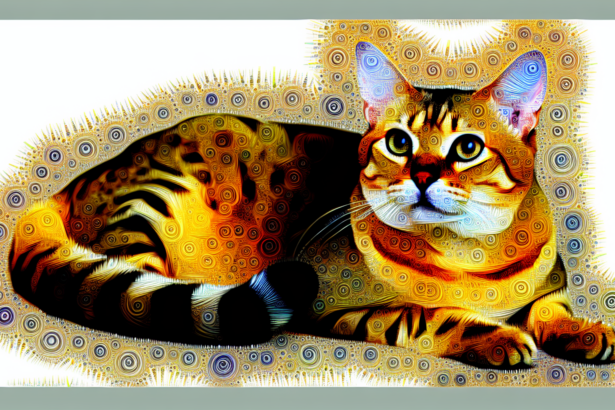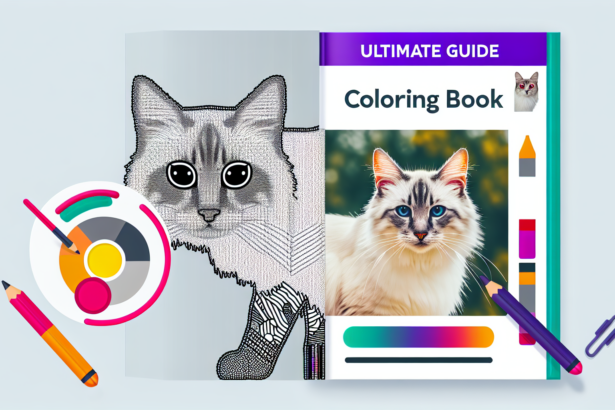Have you ever wondered why cats purr? That soft, soothing, mysterious murmur actually hides surprising reasons that few know about. Discover 5 surprising reasons behind your favorite feline’s purr!
- 1. The cat’s purr as a communication tool
- 2. Purring as a self-healing mechanism
- Vibrations for a cat’s health
- A natural stress reliever for your feline friend
- Purring to relieve pain
- 3. Purring as a way of strengthening the emotional bond with you
- 4. The cat’s purr: a partially unexplained mystery
- Conclusion
- FAQ : Why do cats purr?
1. The cat’s purr as a communication tool
Purring to express well-being
Your cat often purrs when relaxed and happy. This soft sound is a subtle way of showing affection and confidence. Observe her body language: relaxed ears, half-closed eyes and a motionless tail are all signs of happiness.
A subtle way to get your attention
Have you noticed that insistent purring sound when your furball cries out for its favorite food or a cuddle? This particular purr is often accompanied by a hopeful look or an affectionate rub against your legs. Learn to recognize these signals to strengthen your bond.
Purring to soothe conflicts
Cats sometimes use purring to calm a tense situation with other animals. This reassuring sound helps reduce stress and avoid confrontation. Be attentive to these moments to better manage interactions between your pets.
2. Purring as a self-healing mechanism
Vibrations for a cat’s health
Incredible but true: the vibrations of purring (between 25 and 150 Hz) promote cell regeneration, strengthen bones and even accelerate wound healing! According to a veterinary study published by the University of California, these vibrations have a real therapeutic effect on our favorite felines. Encourage these moments of relaxation to help your cat stay healthy.
A natural stress reliever for your feline friend
Purring releases endorphins, the famous feel-good hormones. It helps your cat manage stress and calm down naturally. Here’s an original tip: set up a cozy corner specially dedicated to relaxation, with a soft heating pad, to encourage these soothing moments.
Purring to relieve pain
An ailing cat may purr to soothe itself and reduce its pain. This behavior may be a discreet sign of discomfort or illness. Keep an eye out for changes in behavior to detect a problem early, and don’t hesitate to consult your vet if in doubt.
3. Purring as a way of strengthening the emotional bond with you
A sign of attachment and trust
Your cat often purrs when she’s by your side, a sign that she considers you her family. This behavior strengthens your relationship and complicity. Take advantage of these special moments to strengthen your bond.
A purr to comfort you
Your cat senses your stress or sadness and may purr to soothe you. This empathetic behavior is common in cats who are very attached to their owner. Welcome these moments as a sign of love and support.
A reassuring ritual for your cat
Regular purring during cuddles establishes a reassuring routine for your feline. These special moments provide security and emotional stability. Establish regular cuddling moments to strengthen your bond.
4. The cat’s purr: a partially unexplained mystery
Scientific research still in progress
Despite numerous studies, purring is still something of a mystery. Scientists continue to study this fascinating phenomenon. Keep up to date with the latest discoveries to better understand your companion.
Why do some cats purr more than others?
Every cat has a unique personality that influences the frequency of its purring. Some felines purr infrequently, but that’s nothing to worry about. Respect your cat’s uniqueness and adapt to its needs.
The purr of big cats
Did you know? Big cats like lions and tigers don’t purr like our domestic cats – they roar! Discover the astonishing differences between these closely related but distinct species, and learn more about the fascinating feline family.
Conclusion
A cat’s purr is far more complex and fascinating than it sounds. Understanding these surprising reasons will help you get to know your feline companion better and strengthen your unique relationship. Curious to learn more about your cat’s secrets? Continue your feline exploration on our Pawtounes.fr blog!
FAQ : Why do cats purr?
Do all cats purr?
Most domestic cats purr, but some do so less frequently, depending on their personality.
Does my cat only purr when he’s happy?
No, purring can also express stress, pain or the need for attention.
Do cats purr from birth?
Yes, kittens start purring in the early days to communicate with their mother.
Can a cat’s purr benefit humans?
Yes, listening to a cat purr can reduce stress, improve your mood and promote relaxation.
Why do cats purr? Now that you know their little secrets, you can cuddle your four-legged friend even more!








